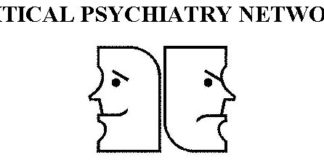Tag: Psychiatry
Allen Frances: Still Spinning the Story
Allen Frances' latest article: There are problems in the psychiatric field, but none of these problems can be blamed on psychiatry. But the spurious promotion of psychiatric "diagnoses" as real illnesses, and the routine prescribing of chemical and electrical "cures" were and are psychiatric inventions.
What Do Psychiatrists Treat if Not the Soul (i.e., the Psyche)?
The words psychiatrist and psychiatry, along with their counterparts in other languages, have come to mean something that is not reflected in their Greek origins. Would you allow a psychiatrist to treat an illness of the soul (in Greek, ψυχή [psychí]) if he or she couldn’t explain what part of the human person psychiatrists treat?
Psychiatry Needs a New Metaphor
The metaphor of “mental disease” is doing more harm than good. Rather than being a tool for communication, it has crossed the boundary from a metaphor to a theory that underpins much of what happens within public mental health services. This places psychiatrists in a position of dutiful compliance with what is essentially a fallacious model.
The Most Dangerous Thing You Will Ever Do
I am a psychiatrist and I have been watching my profession deteriorate for many decades. This is my most direct written statement about the dangers of stepping inside a modern psychiatrist’s office. My conclusions are the culmination of mountains of research authored by me and by an increasing number of other psychiatrists, scientists and journalists.
“Reimagining Psychiatry:” An Interview with Peter Stastny
Peter Stastny is a New York-based psychiatrist, documentary filmmaker, and a co-founder of the International Network toward Alternatives and Recovery (INTAR). He has been...
Can Phenomenology Help Clinicians Stop Objectifying Clients?
Svetlana Sholokhova suggests that incorporating “phenomenological psychology” could open up possibilities for radical transformation within the field of psychiatry.
How Western Psychiatry Harms Alternative Understandings of Mental Health
An anthropological look at the Global Mental Health (GMH) movement suggests several ethical problems and contradictions in its mission.
Pervasive Industry Influence in Healthcare Sector Harms Patients
Experts across the globe point to the harms of drug companies’ influence on research, practice, and education in healthcare noting that it compromises patient care.
Involuntary Hospitalization More Likely With Psychosis Diagnoses and Few Resources
New study links involuntary hospitalization with psychotic diagnosis, previous involuntary hospitalization, and economic deprivation.
Parachute NYC Peer Support Program Presents Challenges and Opportunities
Anthropologists study Parachute NYC to identify challenges and opportunities for implementing peer support and Open Dialogue practices.
Dehumanization Linked to Poorer Mental and Physical Health
A new review finds that dehumanizing language, including self-dehumanization, is connected to anxiety, depression, and disordered eating.
Psychiatry in Need of “Fundamental Rethinking”
Prominent researchers in psychiatry urge the field to move away from a rigid biological focus toward social and psychological perspectives to meet the needs of today’s world.
A Blueprint for an ‘Ecosocial’ Person-Centered Psychiatry
New article pushes for a shift from a psychiatry centered on brain circuitry toward an 'ecosocial' view of mind, brain, and culture.
A Social Psychiatry Manifesto that Takes Social Context Seriously
A re-visioned approach to social psychiatry aims to understand the broad influence of social life on mental health.
Loneliness Increases Risk of Severe ‘Common Mental Disorders’
Loneliness was found to both predict and be reinforced by severe common mental disorders.
A Biopsychosocial Model Beyond the Mind-Body Split
Can a renewed biopsychosocial approach, grounded in an updated philosophy, foster person-centered medicine, and psychiatry?
Economic Deprivation and Social Fragmentation Drive Suicide Rates in US
Major study finds that economic deprivation and a lack of social capital are driving increasing rates of suicide in the U.S.
Psychiatrist Describes Role in Open Dialogue Model of Care
Psychiatrist outlines varying roles in Open Dialogue model, fostering service-user and family agency through meaningful conversations with a team of providers.
How Does the Soteria House Heal?
The alternative treatment model of Soteria helps individuals suffering from schizophrenia without relying on medication or coercion.
Psychiatric Drug Withdrawal in Spain
My study, in which I slowly withdrew people from prescribed antipsychotics and antidepressants, found that it is possible to decrease both spending on psychiatric drugs and patients' chronic exposure to them. In general, the drug-reduction process was well-tolerated and well-accepted among those treated.
How Biotechologies Preserve the Idea of the Disordered Brain
Social scientists explore how psychiatry’s use of biotechnology is being used to reinvent and secure the idea of the disordered brain
Open Dialogue and a Human Rights Approach to Mental Health Care
Analysis suggests that Open Dialogue aligns with human rights-based perspectives on mental health care.
Researchers Call for Integration of Social Risk Factors in Mental Health...
An understanding of the importance of social risk factors in mental health outcomes has professionals calling for better models and integrated treatments.
Psychotropic Medications Serve as Powerful Tools for U.S. Military, Imperialism
Ethnographic research sheds light on extensive psychopharmaceutical use by soldiers in post 9/11 U.S. wars.
Founding Member Looks Back on 20 Years of the Critical Psychiatry...
Founding member of the Critical Psychiatry Network (CPN), psychiatrist Duncan B. Double, reviews the past 20 years of the Critical Psychiatry Network in an editorial published in the British Journal of Psychiatry.

































